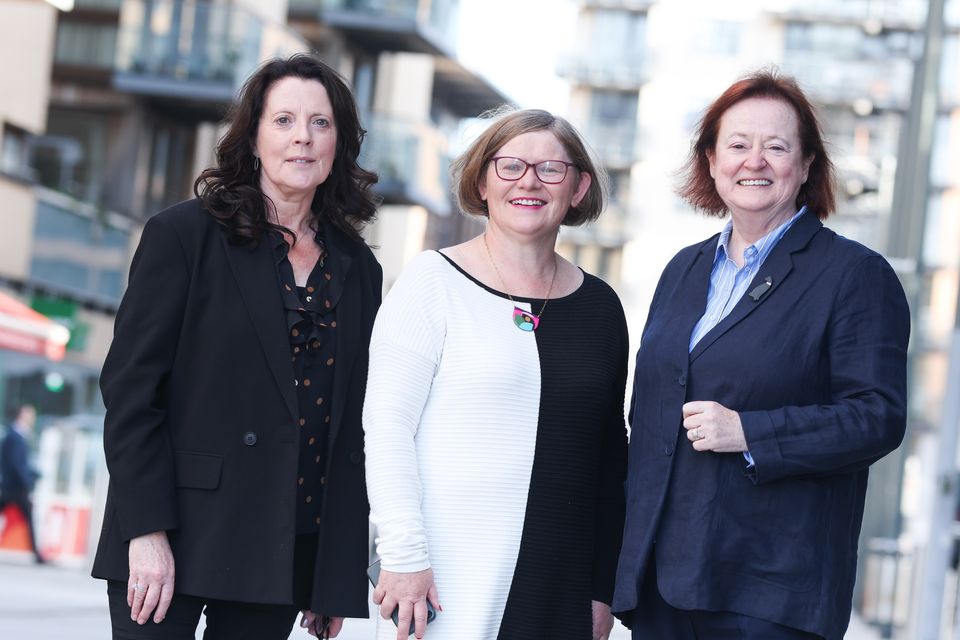Politics
Visa Restrictions Endanger Migrant Students in Ireland’s Housing Crisis

New visa requirements for foreign students wishing to study in Ireland are increasing their vulnerability to exploitation in the housing market. According to a recent report, the demanding process of securing proof of accommodation is a significant barrier for these students, leading them to face potential risks associated with inadequate housing options.
Mary Patricia Accor, the deputy chief executive of AkiDwA, emphasized these concerns during a conference hosted by the National Women’s Council (NWC). The discussion focused on the intersection of housing insecurity and violence against women, highlighting how migrant students are particularly susceptible to exploitation. Accor pointed out that the pressure to secure accommodation can drive foreign students to accept unsafe living conditions, especially if they are relying on part-time jobs to support their studies.
“If there is a crisis already, then there are going to be higher chances of exchanging sex for rent,” Accor stated, drawing attention to the risks that arise from the current housing landscape. A survey conducted by the Irish Council for International Students in 2024 revealed troubling statistics: among the 512 international students surveyed, 14 women and 8 men reported receiving offers of accommodation in exchange for sex.
The NWC’s report, published in July 2024, underlined that the current dynamics of the Irish housing market foster an environment ripe for tenant exploitation. A panel discussion led by Shirley Scott from the Dublin Rape Crisis Centre included insights from various experts in the field, such as Barbara Condon from Ruhama, Ruth Breslin from the Sexual Exploitation Research and Policy Institute (SERP), and Anne Marie O’Reilly from Threshold. They collectively acknowledged that fear of homelessness significantly contributes to a cycle that prevents women from escaping situations that violate their rights.
Condon shared alarming anecdotes, noting that several women had reported sexual assaults in the temporary centres where they sought refuge. “We’ve had a number of women report to us that they were sexually assaulted in the centre they were staying in, by either a staff member or a male resident,” she said. She added that the anxiety surrounding potential homelessness often dissuades these women from coming forward to report such incidents.
During the discussion, panelists stressed the necessity for government intervention and the provisions of Budget 2026 to support victims of sexual exploitation. A prominent demand was for gender-specific residences that understand the impacts of gender-based violence. Breslin highlighted, “Gender-specific accommodation, incorporating an understanding of gender-based violence and its impacts,” is crucial in addressing the issues at hand.
The panel concluded with calls for increased funding for existing resources and a comprehensive address to the ongoing housing crisis. They urged significant reforms to the current direct provision system, with some advocating for its complete dismantling due to the severe human rights abuses reported within.
As the conversation continues, the urgent need for systemic changes in Ireland’s housing policies remains a top priority, particularly for vulnerable migrant students facing an uphill battle in securing safe and equitable housing conditions.
-

 Top Stories2 months ago
Top Stories2 months agoTributes Surge for 9-Year-Old Leon Briody After Cancer Battle
-

 Entertainment3 months ago
Entertainment3 months agoAimee Osbourne Joins Family for Emotional Tribute to Ozzy
-

 Politics3 months ago
Politics3 months agoDanny Healy-Rae Considers Complaint After Altercation with Garda
-

 Top Stories3 months ago
Top Stories3 months agoIreland Enjoys Summer Heat as Hurricane Erin Approaches Atlantic
-

 World4 months ago
World4 months agoHawaii Commemorates 80 Years Since Hiroshima Bombing with Ceremony
-

 Top Stories2 months ago
Top Stories2 months agoNewcastle West Woman Patricia Foley Found Safe After Urgent Search
-

 Top Stories4 months ago
Top Stories4 months agoFianna Fáil TDs Urgently Consider Maire Geoghegan-Quinn for Presidency
-

 World4 months ago
World4 months agoCouple Convicted of Murdering Two-Year-Old Grandson in Wales
-

 World4 months ago
World4 months agoGaza Aid Distribution Tragedy: 20 Killed Amid Ongoing Violence
-

 World4 months ago
World4 months agoAristocrat Constance Marten and Partner Convicted of Infant Murder
-

 Top Stories3 months ago
Top Stories3 months agoClimbing Errigal: A Must-Do Summer Adventure in Donegal
-

 Top Stories3 months ago
Top Stories3 months agoHike Donegal’s Errigal Mountain NOW for Unforgettable Summer Views









